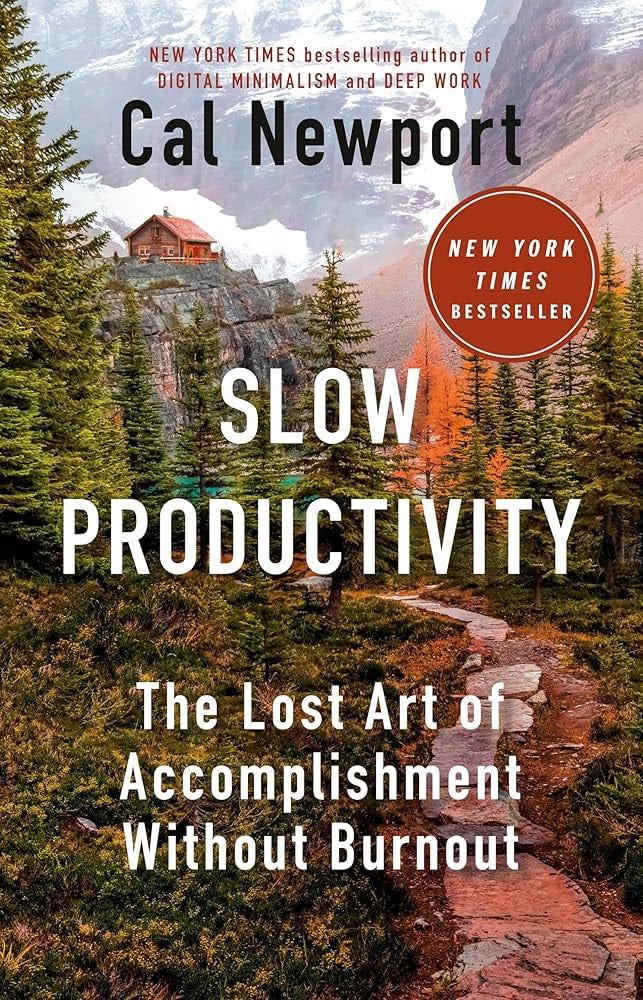The Rise of Pseudo-Connection
What Cal Newport’s Book Slow Productivity Can Teach us About Social Burnout
The author I recommend to my students more than any other is Cal Newport. His book Deep Work had a big impact on how I do my work as a professor, and helped me realize how often I was spinning my wheels.
Newport’s most recent book, Slow Productivity, is an excellent follow-up and holds important lessons for our social lives.
Slow Productivity is based on the premise that a lot of what knowledge workers do every day is best described as pseudo-productivity, which he defines as “the use of visible activity as the primary means of approximating actual productive effort.” It’s what drives many managers to insist on late nights at the office, too many meetings, and emails on the weekends. It might look like something’s happening, but is valuable work actually being done?
In the same way, too many solutions to the loneliness epidemic prioritize what could be called pseudo-connection, which I think of as “the use of visible socializing as the primary means of approximating actual high-quality relationships.” These are the gatherings we attend even when we know they aren’t aligned with our vision of a fulfilling social life.
Pseudo-connection falls into one of the main traps of the loneliness narrative – outside-in solutions that ask you to surround yourself with people and hope everything works out OK.
*****
Newport offers three principles of slow productivity:
1. Do fewer things.
2. Work at a natural pace.
3. Obsess over quality.
These principles are meant to help us build more remarkable professional lives, but they offer important lessons for social burnout, too. If you’re feeling social burnout, or recognize pseudo-connection in your own social life, consider applying the principles of slow productivity to your relationships:
1. Do fewer things -> Clear up your social calendar. Focus on the meetings and meetups that are most important to you and most aligned with your values.
2. Work at a natural pace -> Don’t be afraid to be the first one to leave. You can leave the happy hour after an hour, even if you don’t have somewhere else to be.
3. Obsess over quality -> Speak up for a social life that energizes you. Don’t let people-pleasing get in the way of voicing your vision of an outing you’re excited about.
If your coworker told you she was feeling burned out at work, you wouldn’t give her a new assignment, yet that’s often how we treat social burnout – encouraging people to lift themselves up and do even more. Slow Productivity offers the promise of a more promising approach, one founded in social sustainability instead of social overload.


